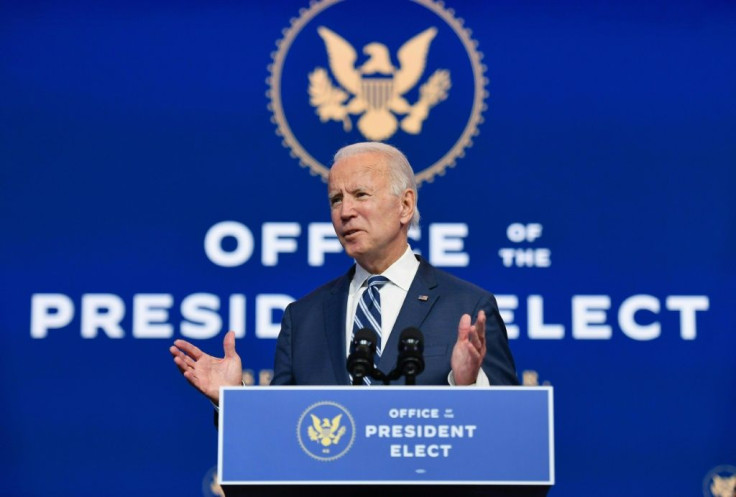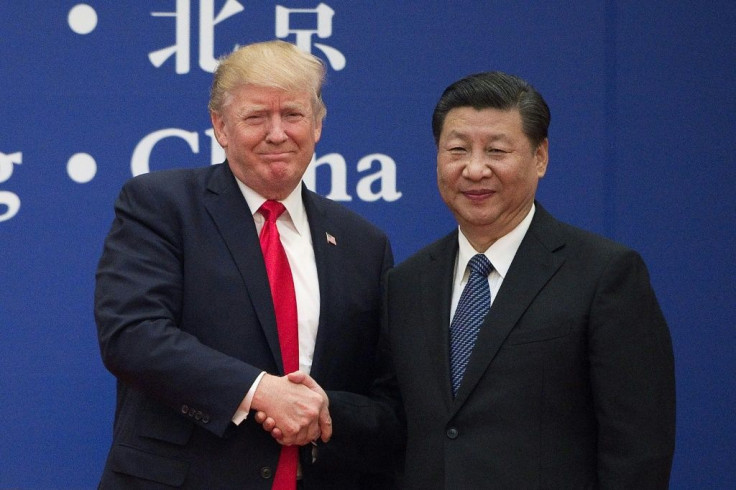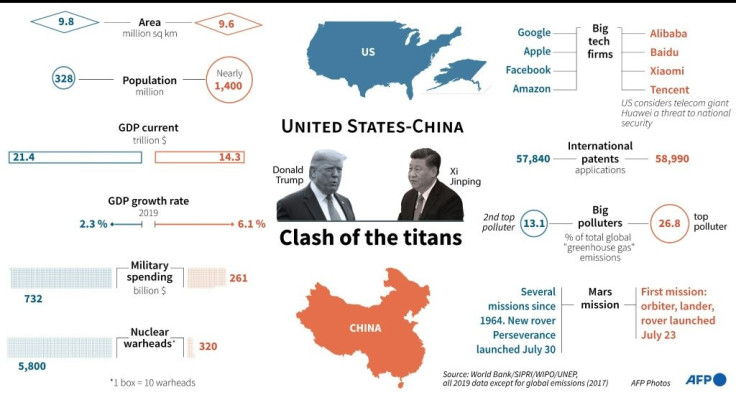China Sends 'Congratulations' To Joe Biden On US Election Win
China congratulated US President-elect Joe Biden on Friday nearly a week after he was declared winner of the American election, saying it respects "the choice of the American people".
US-China ties have grown increasingly strained in recent years under the administration of incumbent Donald Trump, and relations are as icy as at any time since formal ties were established four decades ago.

"We respect the choice of the American people. We express our congratulations to Mr Biden and Ms Harris," said foreign ministry spokesman Wang Wenbin at a regular press briefing, referring to incoming vice president Kamala Harris.
China was previously among a handful of major countries including Russia and Mexico that had not congratulated the president-elect, with Beijing commenting earlier this week simply that it had "noticed Mr Biden declared he is the winner".
Since US media called the presidential race, Trump has not conceded to Biden as is traditional practice once a winner is projected.

Biden, who leads by more than five million in the popular vote, cemented his victory late Thursday by winning Arizona, US networks said.
President Trump has repeatedly claimed that the election has been hindered by fraud, and Thursday retweeted a baseless claim that an election equipment maker "deleted" 2.7 million votes for him nationwide.
US election officials said there is no evidence of compromised ballots or corrupt voting systems in the US election.

Trump's four years in the White House have been marked by soaring tensions as Trump portrayed China as the greatest threat to the United States and global democracy and the two sides sparred over topics from blame for the Covid-19 pandemic to technology, and China's human rights record.
The two clashed in a bruising trade war over US demands, including greater access to China's markets, broad reform of a business playing field that heavily favours Chinese firms, and a loosening of heavy state control by Beijing.
In January a deal was signed between the two -- bringing a partial truce that obliged Beijing to import an additional $200 billion in American products over two years, ranging from cars to machinery and oil to farm products.
Trump has also turned its gun on Chinese tech firms it says poses security threats, including video-sharing app TikTok -- owned by Chinese parent company Bytedance -- and mobile giant Huawei.
But it is far from certain that relations will improve under a Biden administration, with the Democrat outspoken during his campaign on China's dismal human rights record.
During a Democratic Party primary debate in February, Biden called Chinese President Xi Jinping a "thug".
His presidential campaign has also referred to the crackdown on the Muslim Uighur minority in China's Xinjiang as a "genocide" -- a campaign Beijing defends as vocational training to counter the threat of terrorism.
© Copyright AFP 2024. All rights reserved.




















